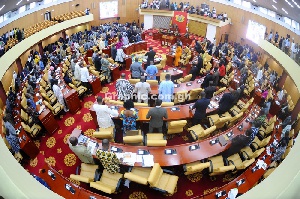Member of Parliament for Banda, Ibrahim Ahmed, has stated Ghana cannot make progress in its fight against corruption if the Right to Information (RTI) bill that has dragged on for over 15 years is not passed by parliament.
Right to information is a fundamental human right guaranteed by the country’s 1992 Constitution and recognized as a right under International Conventions on Human rights.
The passage of the RTI will guarantee Ghanaians access to official information in the custody of public and private bodies performing functions that are funded by the taxpayer.
Drafted in 1999, the bill was presented to parliament in 2010 after it received reviews in 2003, 2005 and 2007.
An attempt by Parliament in December 2016 to finally pass the bill hit a snag as the minority members in the House raised a red flag over aspects of the bill. They at the time proposed 24 amendments be made to the bill.
Contributing to the debate on the report of the Appointments Committee of Parliament on the vetting of Martin Amidu as the Special Prosecutor, Mr Ahmed said passing the law will help in getting “the right information” to do away with perceptions whenever allegations of corruption are made.
“Mr. Speaker, much as we want to fight corruption, we must take every step to pass the right to information bill and that will create the access for you, the media, for everybody,” he said in Parliament Tuesday.
He noted that the fight against corruption is a shared responsibility, hence everyone, including parliament, must contribute.
Mr. Ahmed who is also the Chief Whip contended that Ghana cannot fight corruption without the right to information.
He thus urged the House to expedite action on the bill for its passage to give a boost to corruption fight in the country.
Meanwhile, on the issue of Martin Amidu, he said he has taken special interest in the recommendations of the Committee as contained in the report which was presented to parliament Tuesday, February 20.
He said the NDC has equally good men like Martin Amidu hence the president should appoint such people to be part of his government, stating “we have the men”.
General News of Wednesday, 21 February 2018
Source: 3news.com

















